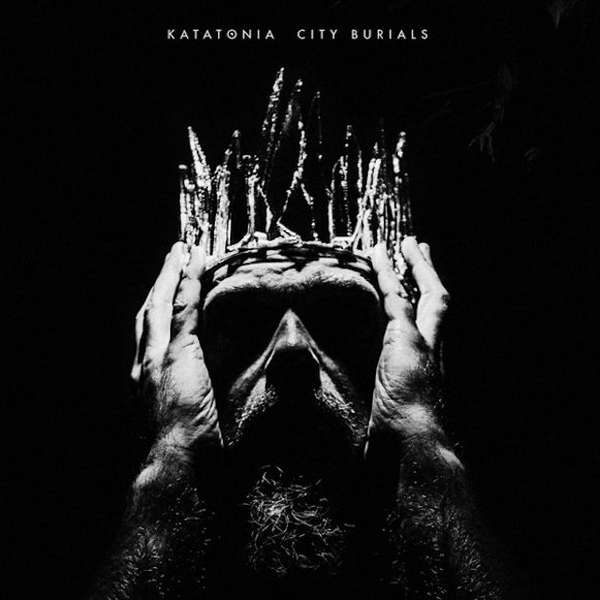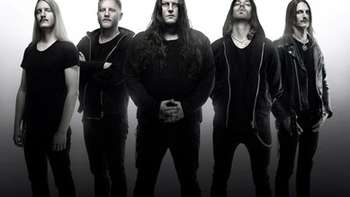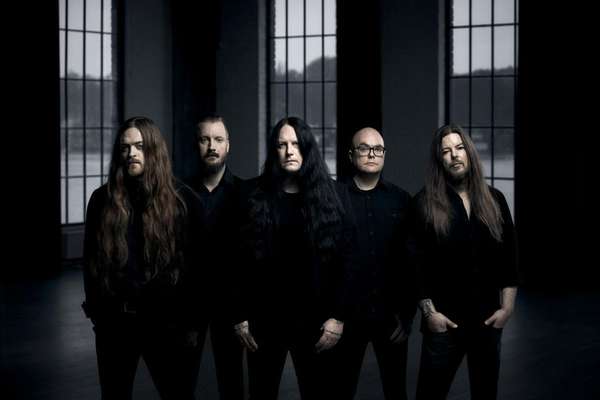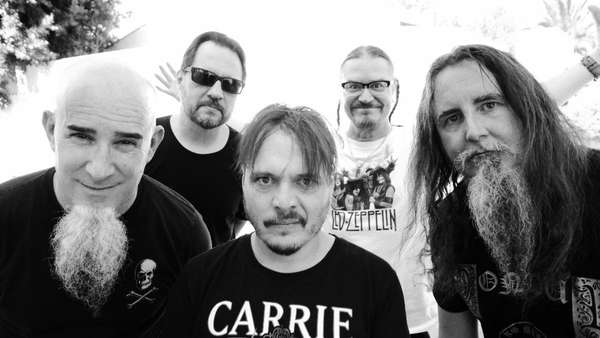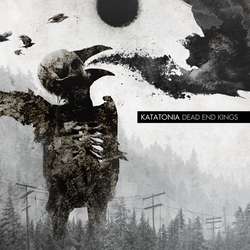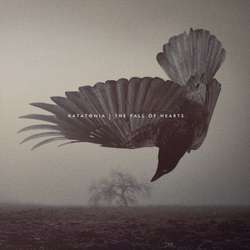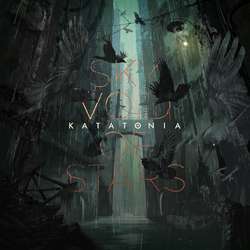Katatonia are one of the most well loved and revered bands of today and while the wait for new music since The Fall of Hearts in 2016 has been a little longer than the usual cycle for the Swedish band – they announced a hiatus after this record was released - they have not been resting in that time, rather they have been reassessing. The band have been busy with other projects (Jonas Renkse and Anders Nyström are both in Bloodbath) and taking a little more time to rediscover themselves, to restructure the band (there have been some line-up shifts in the intervening years) and to become an even more formidable, creative unit.
The Swedes have been developing their sound since their beginnings thirty years ago and while members have changed over three decades, the main thrust/founders of the band, Renkse and Nyström have kept Katatonia solidly at the forefront of their genre. From doom/death metal to shimmering, progressive heavy rock, the band may have moved on from their origins, but the emotive aspect is still very much present in their music.
Where anger and rage were previously exorcised using heavy guitars and heavier vocals, the Katatonia of today take their emotions to new heights with beautifully clear vocal lines and lyrics that carry the weight. Of course, the music is still heavy, but it’s different, it’s more mature and it’s lived in this world for long enough to have knowledge of dashed hopes and collapsed optimism.
Loss is very much a staple in the lyrical world of Katatonia and Renkse writes all of the lyrics, whether they are metaphorical or touch close to home, there is a sense of something deeply personal about his words and City Burials deals with the passing of time and how emotions are tied inextricably to that past and that as we grow older those memories become even more potent and perhaps painful, as we move towards the inevitable.
“Heart Set To Divide” opens City Burials on soft movements with Jonas Renkse’s voice showing immediate vulnerability and openness; his vocal is the narrative force of Katatonia and this ability to draw you in with only one line is a powerful and something that is extremely beautiful in its agony. The song soon segues wonderfully into heavier territory and its clear that Katatonia still appreciate moments of weight outside of the lyrical aspect and this is carried into “Behind The Blood” and its soaring guitar solos that echo a heavy metal style and it is a welcome propulsive shift into a higher gear.
That energy falls away somewhat on “Lacquer,” but it is by no means a negative; Katatonia are adept at these momentary changes of pace and they are necessary so that the band, and listener, are able to continue without being dragged to the depths all at once. No, you must experience every possible emotion and immerse yourself in the bright pain that the songs create. Subtle electronic beats are used to build atmosphere, and while they have been a feature of their music for a while now, they are now given a little more prominence and the lack of fear to create something new for Katatonia is what keeps pushing this band forward – the past is to be remembered and built upon and cannot be changed, and no matter the consequence you must learn to live onwards, and that is something that City Burials talks about often.
It must be said that City Burials is, vocally, the best Katatonia album so far. Renske’s voice is radiant in its range – from deep baritones to soaring chorus lines, he brings warmth and humanity to the songs and even those that fall deep into endless despair are given life – the utter heartbreak of “Vanishers” is an ode to lost love and the addition of Anni Bernhard’s crystalline voice during particularly emotional moments allows us to see another side of the story and it lifts the band into a new place, one of reflection from other perspectives, perhaps, and not solely about the self.
“Flicker” begins on fairly quiet terms and in the moments that the song suddenly bursts into life and evidence of Katatonia’s new pathways are revealed – the guitars move from simple forms and the electronic elements lay a foundation for something more intriguing than the straightforward opening and then the chorus hits. Lyrically, it calls to mind earlier Katatonia work and the references to a “twin” are something that has been dealt with before, on The Great Cold Distance, and as the song moves towards in final point the urgency in which Renske wants to move forwards from those memories becomes more apparent in a voice that is seeking and pleading for something new.
The final trifecta of songs on City Burials show Katatonia at their most vulnerable and honest and in “Lachesis,” they take a short respite from the pain to collect themselves and begin the final descent into hopelessness. “Untrodden,” then, is the final song and it is the culmination of everything that Katatonia stand for. The vivid pain that is evident is made all the more tangible by Renkse’s voice and its exposing of the inner turmoil that most of us have found ourselves in in life. If it all sounds a little depressing then, you’re not wrong, but somehow City Burials feels…..brighter than previous albums. Perhaps it is the time way from the band that has reignited a passion but also the time that they have taken as people to realise that just being alive and in the present changes you in ways you never expected. That to be full of sorrow for the past and for the person you once were and to be sad that you are becoming a different kind of you is perfectly acceptable – sometimes you need a little encouragement to realise that things happen for a reason and that they can somehow be good for the soul in the long term. That is a hard acknowledgement to deal with but Katatonia are doing it the only way they know how – that through honest words and luminous songs, hope can find a way through.
